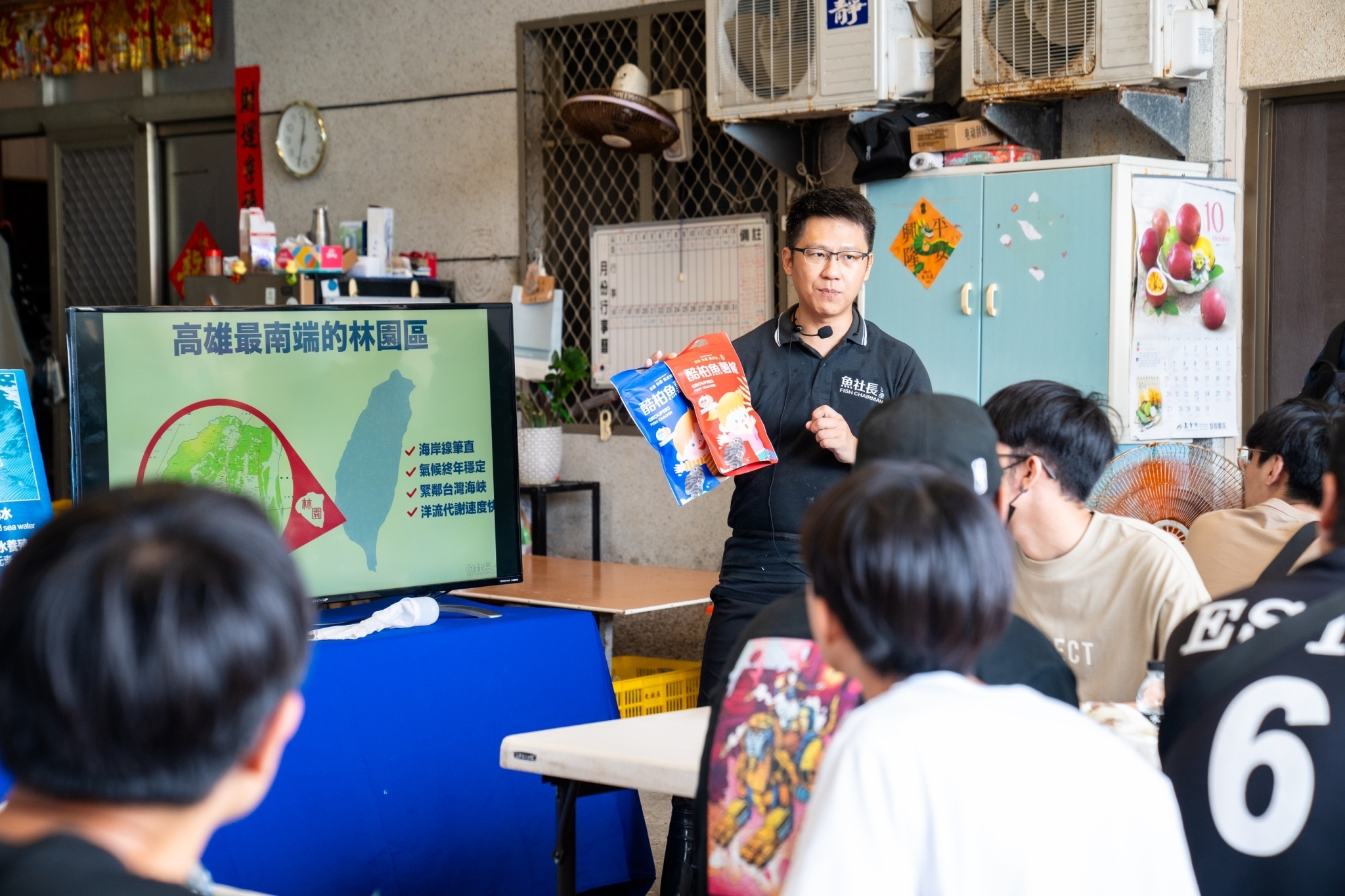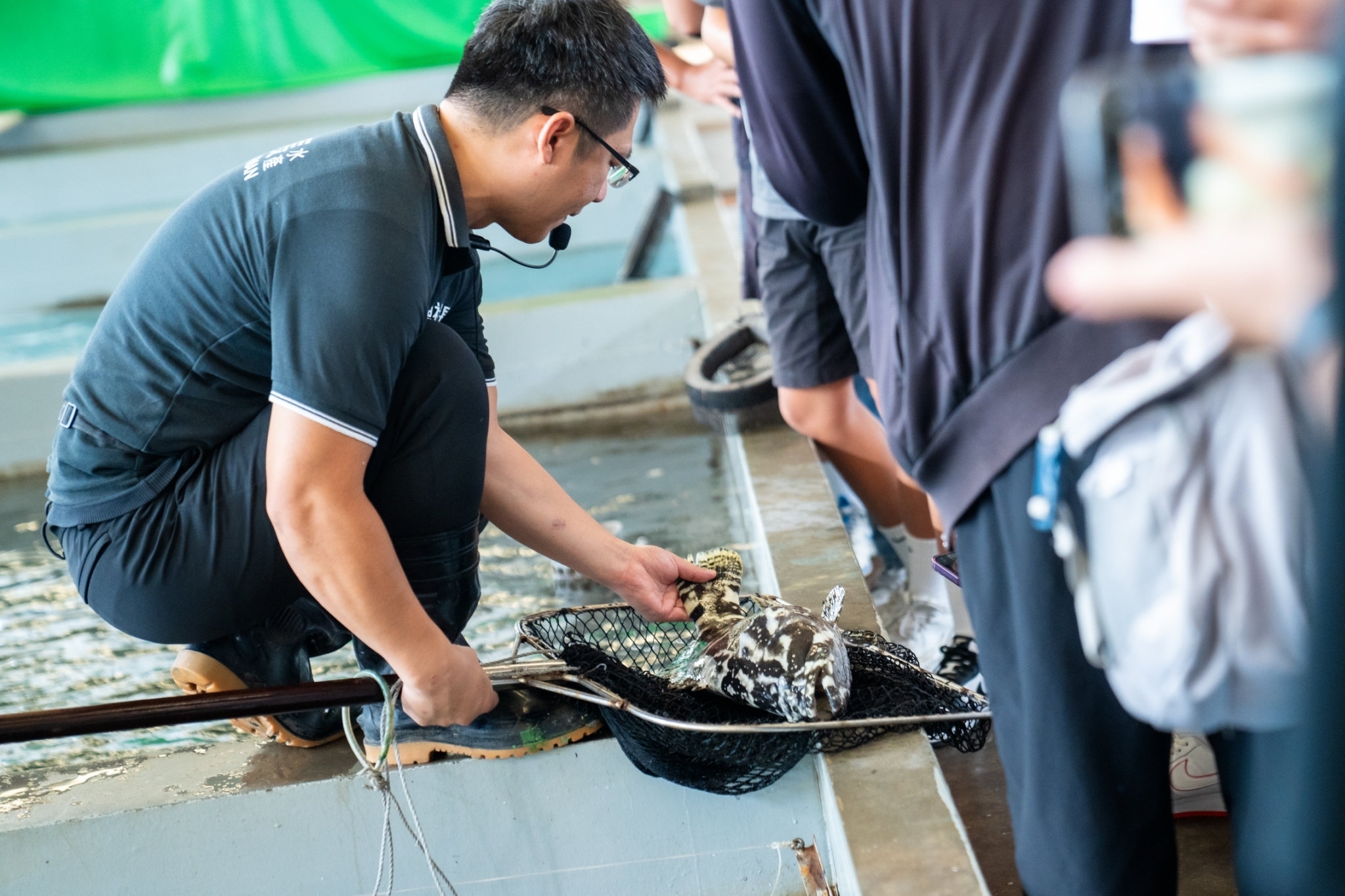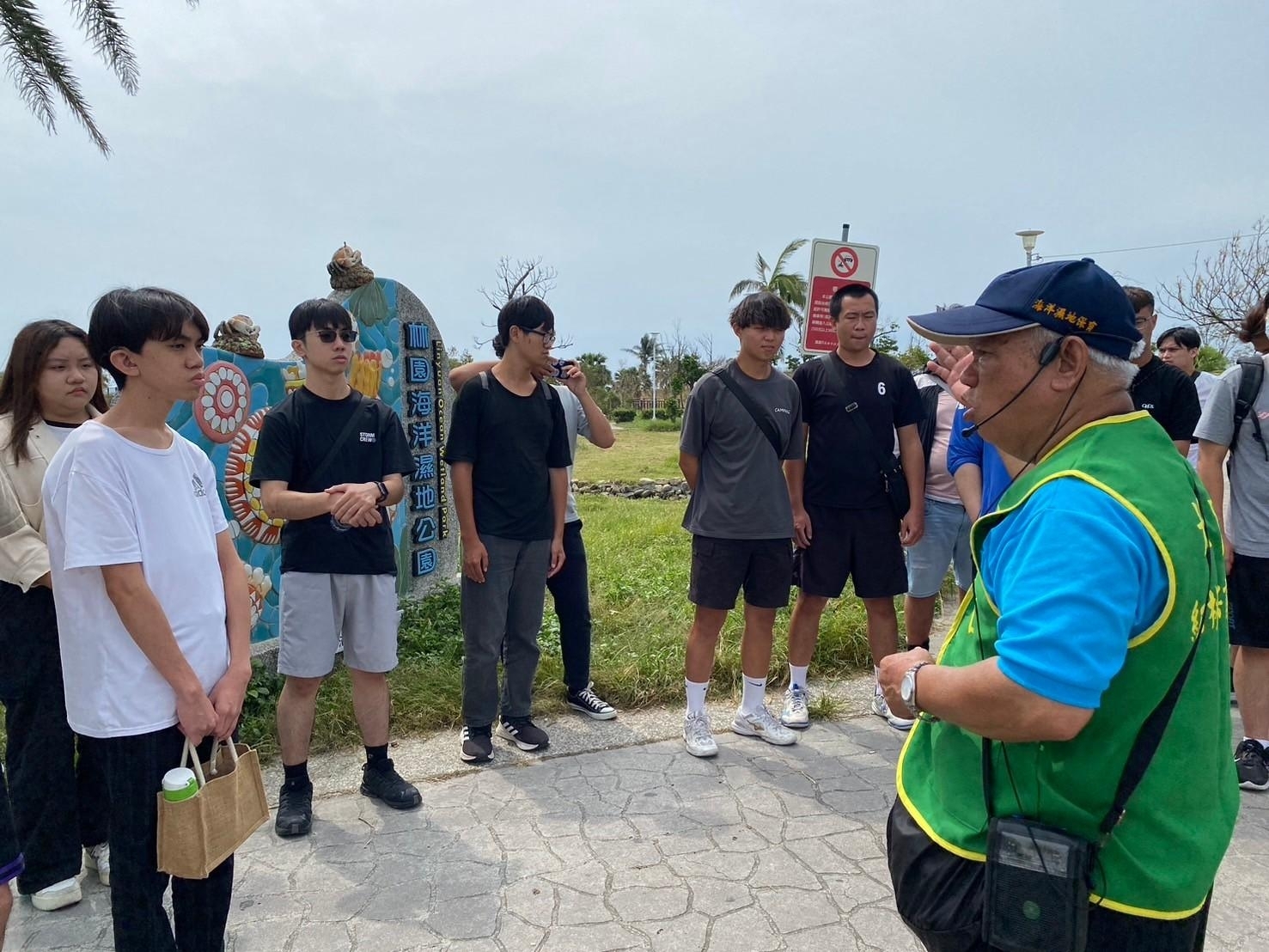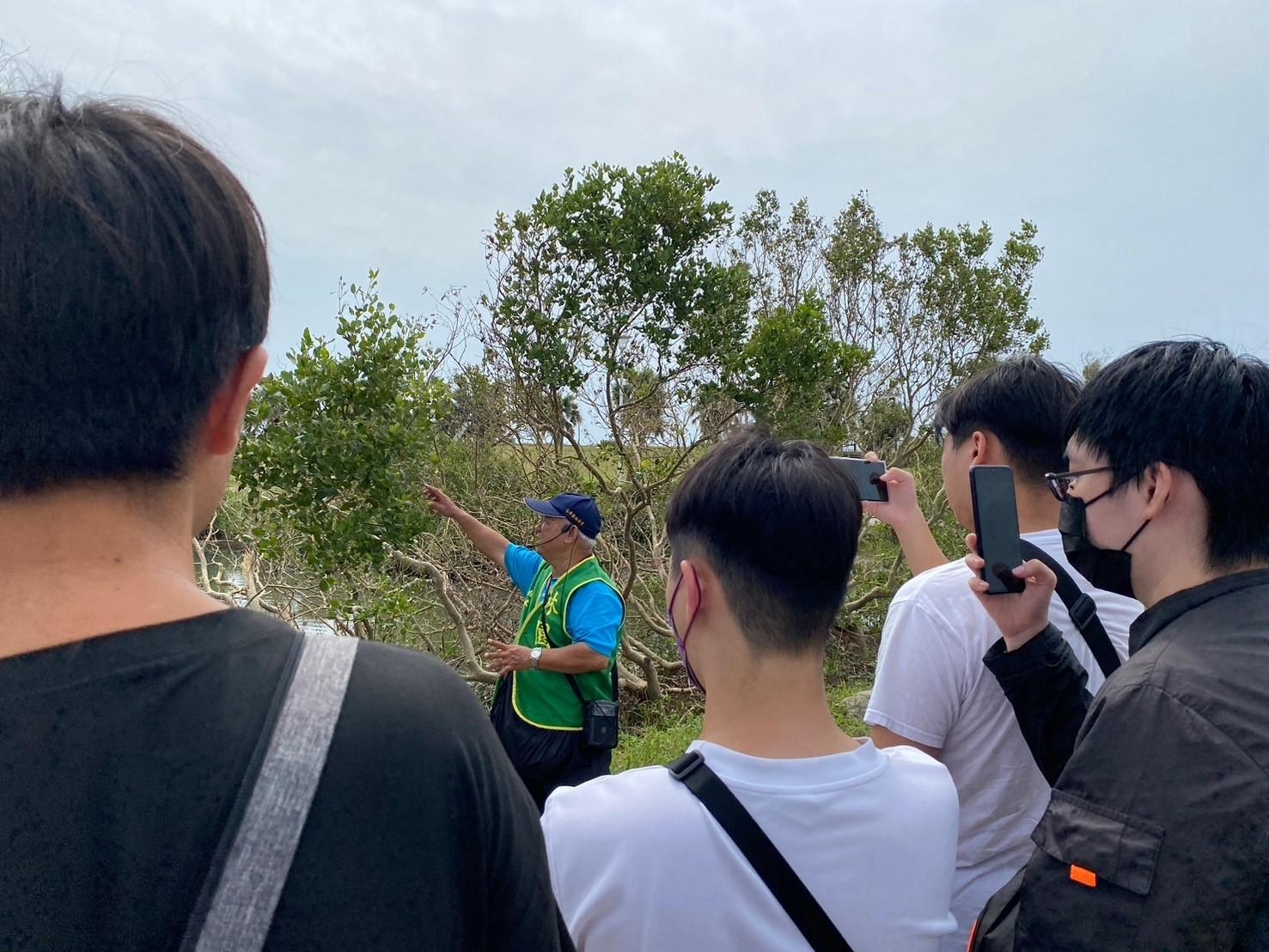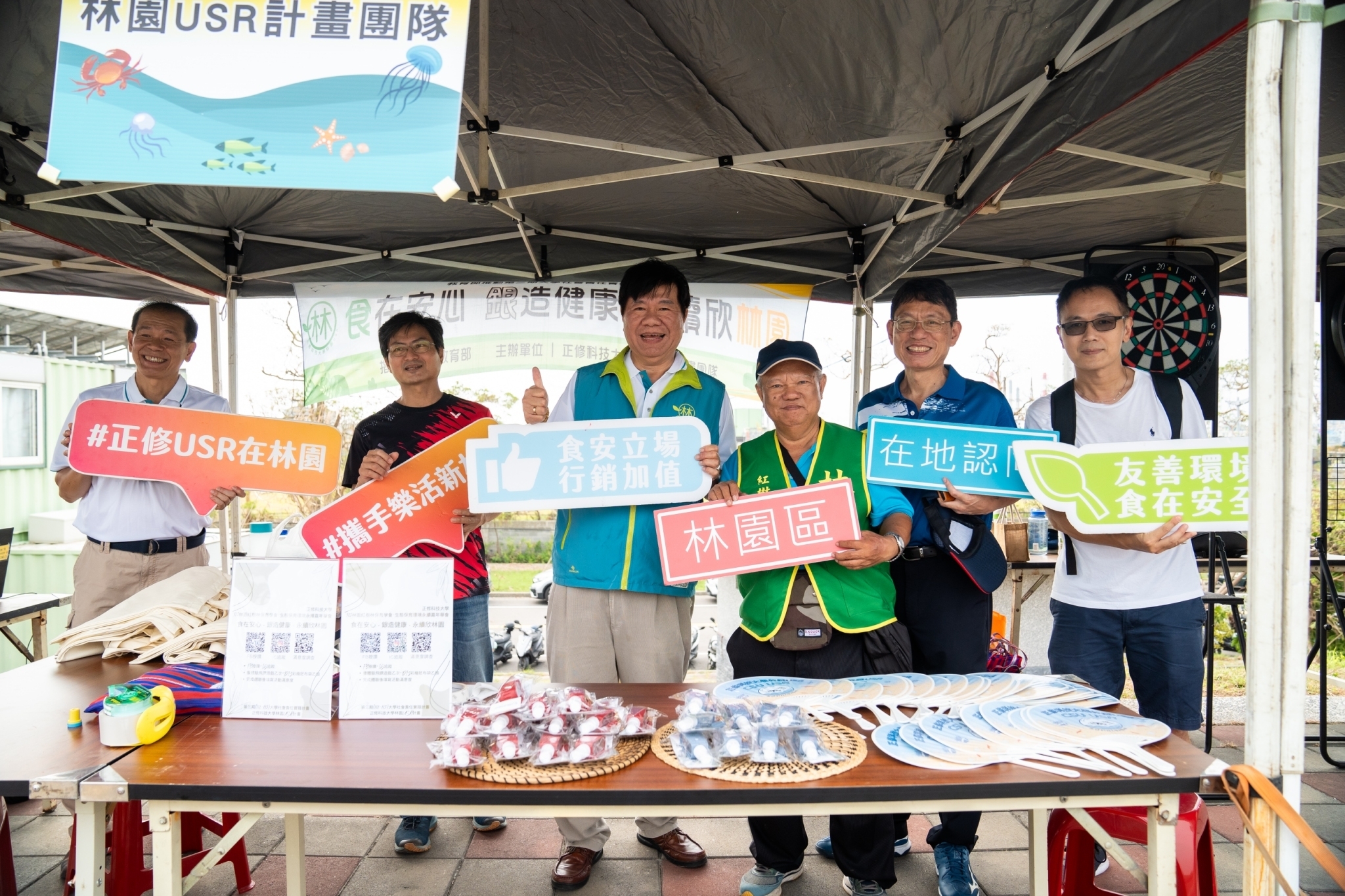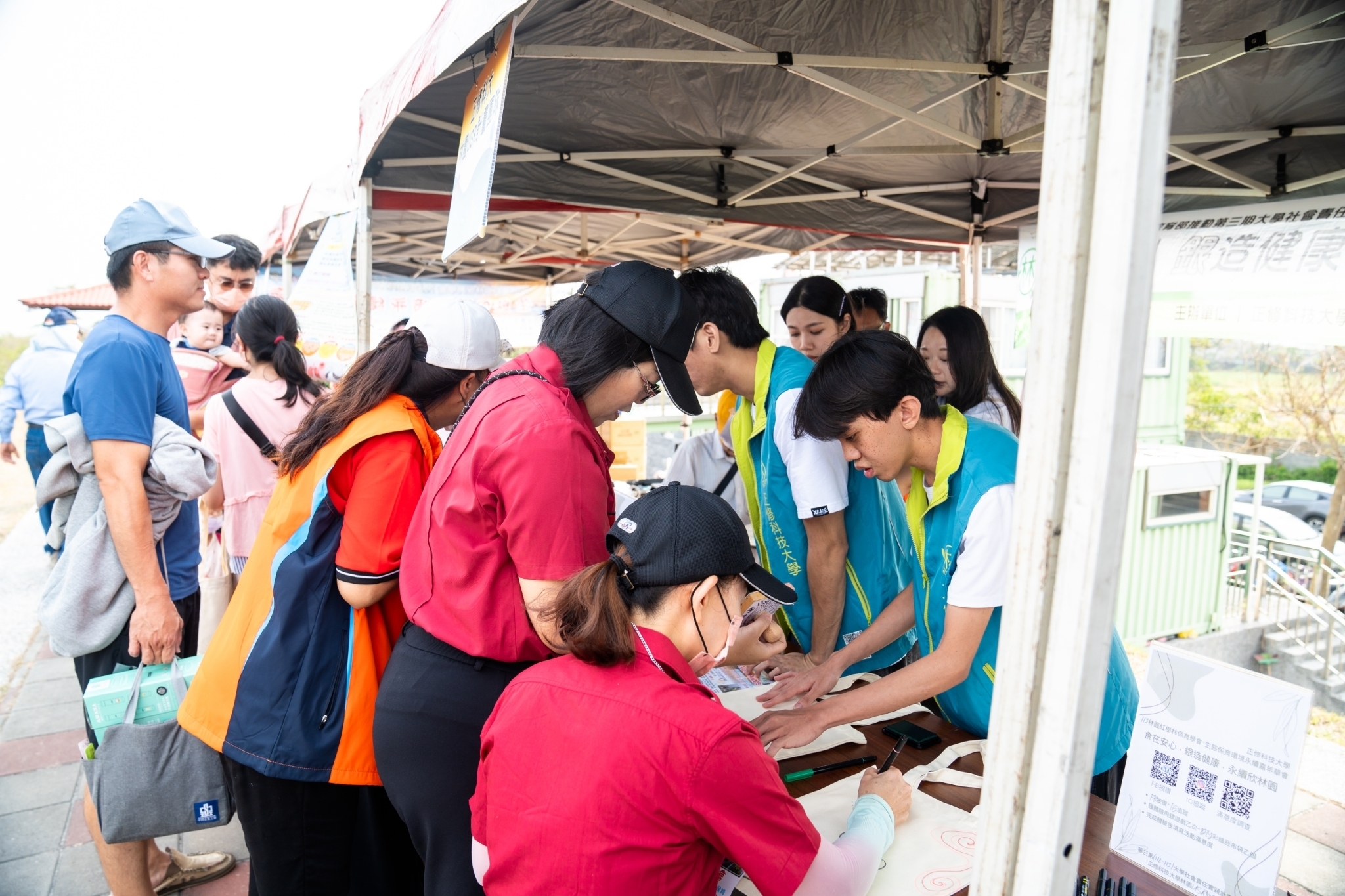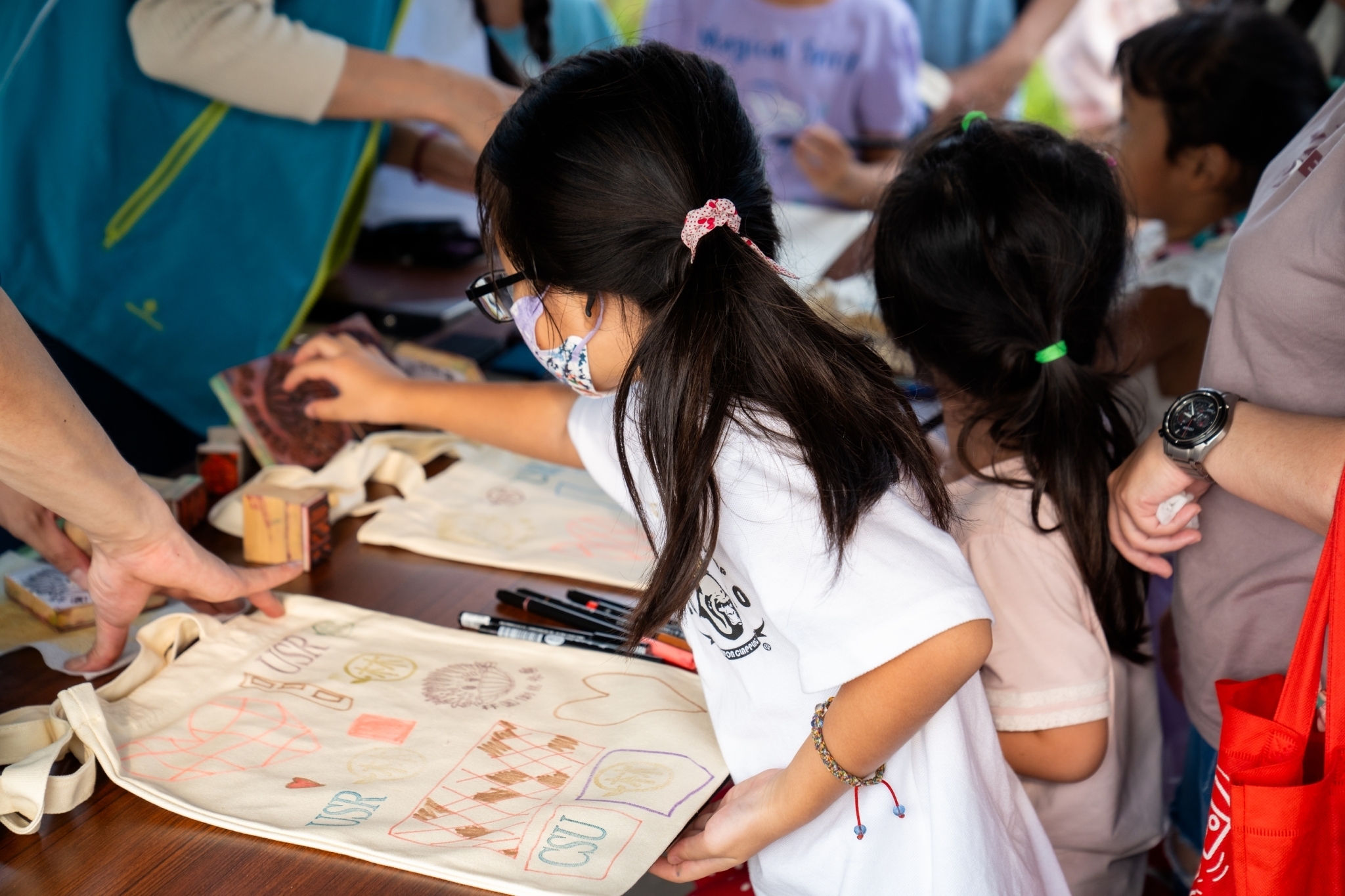From Fish Farms to Wetland Carnivals: Linyuan USR One-Day Program Promotes Ecological Conservation
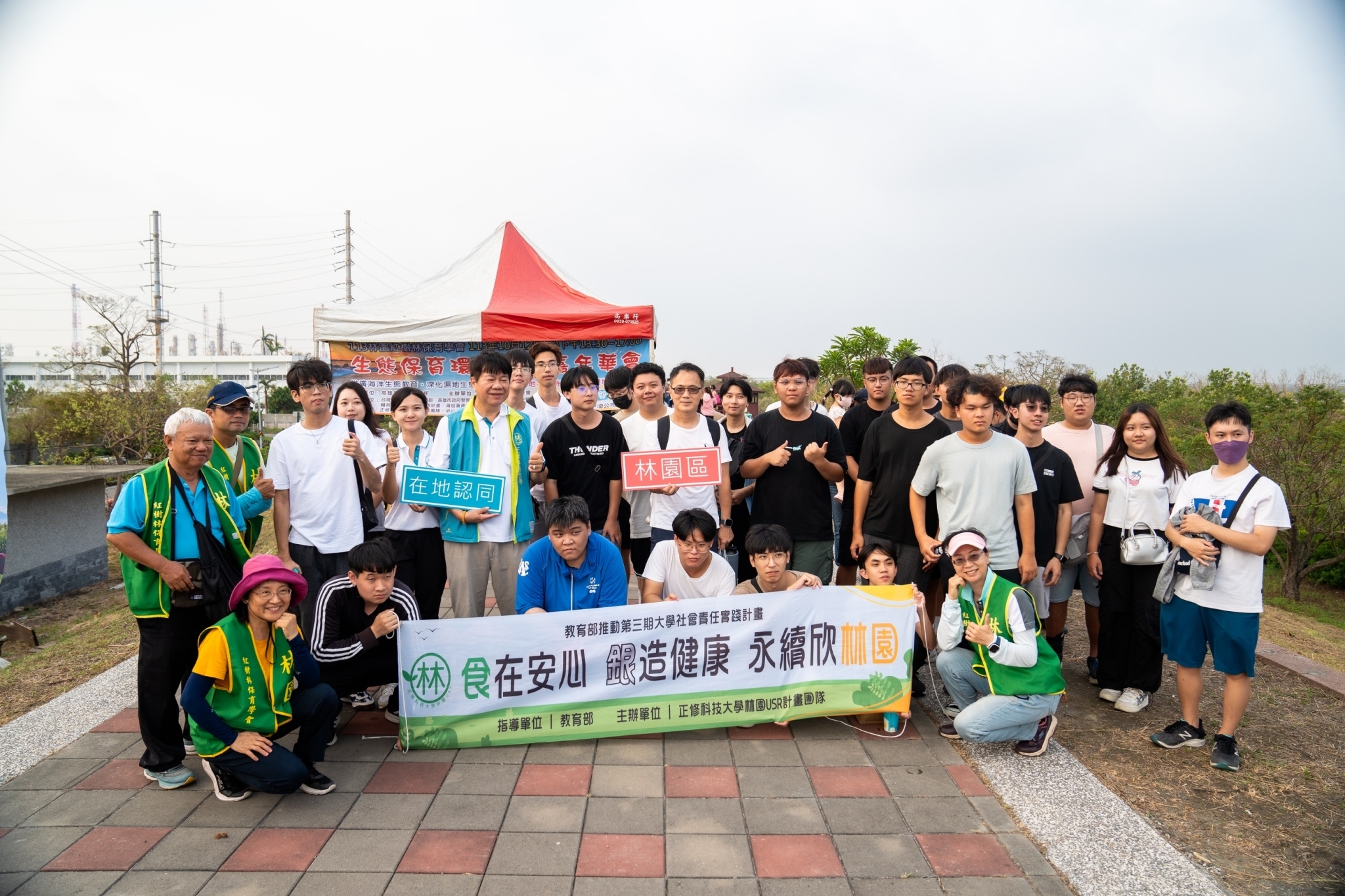
Wetlands and Blue Carbon: A Journey into Ecological Conservation in Practice
As the world faces intensifying challenges from climate change and ecological degradation, wetlands have emerged as critical ecosystems that serve a dual role: carbon sinks and environmental protectors. Among their functions, the concept of “blue carbon”—carbon captured and stored by wetland vegetation such as mangroves—is gaining increasing recognition as a natural solution to global warming. At the core of this vision, the Linyuan USR (University Social Responsibility) Project Team designed a one-day wetland ecological conservation course, paired with a community carnival to promote marine ecological education and deepen public awareness of sustainability.
Sustainable Aquaculture: Bridging the Gap from Farm to Table
The course began with a visit to the “Fish President” dragon-tiger grouper aquaculture facility in Linyuan District, Kaohsiung. Here, student volunteers learned how indoor-friendly aquaculture practices can meet high ecological standards while ensuring environmental sustainability. Through on-site exploration, students observed how innovative technologies not only shorten the supply chain from farm to table, enhancing freshness, but also reduce carbon emissions, contributing to the broader goal of environmental sustainability.
Mangroves and Wetlands: The Untapped Power of Blue Carbon
The second part of the course took the students to the Linyuan Artificial Wetland Mangrove Ecological Area. Guided by professional educators, they gained in-depth knowledge about the mangrove ecosystem. As a rich biodiversity hub and a high-potential blue carbon reservoir, mangroves can absorb and store significant amounts of CO₂, playing a vital role in mitigating climate change.
Students observed the propagation process of mangrove seeds, and learned about wetland species such as upside-down jellyfish and mollusks. The session also included a beach clean-up and marine debris awareness activity, highlighting the impact of plastic waste on marine ecosystems and motivating participants to take proactive steps in wetland conservation.
Wetland Carnival: Marine Education Through Family-Friendly Engagement
The final portion of the day involved assisting in the Wetland Ecology and Environmental Sustainability Carnival, a public-facing event aimed at enhancing community knowledge of marine conservation and sustainability. Student volunteers managed interactive booths and designed DIY “Upside-Down Jellyfish” canvas bag printing activities for children and parents. This creative hands-on activity combined fun with eco-literacy, helping participants understand the importance of wetland species and the blue carbon cycle, while promoting environmental values in everyday life.
A Collective Commitment to Environmental Sustainability
By integrating a field-based course with a community carnival, the Linyuan USR Project effectively communicated the value of wetland conservation, blue carbon potential, and marine ecological education to both students and the broader public. It was not only a meaningful learning and service experience, but also a collective action toward environmental sustainability. As more community members join this effort, awareness of wetland protection and the blue carbon concept will continue to grow—becoming a vital force in safeguarding the planet for future generations.

